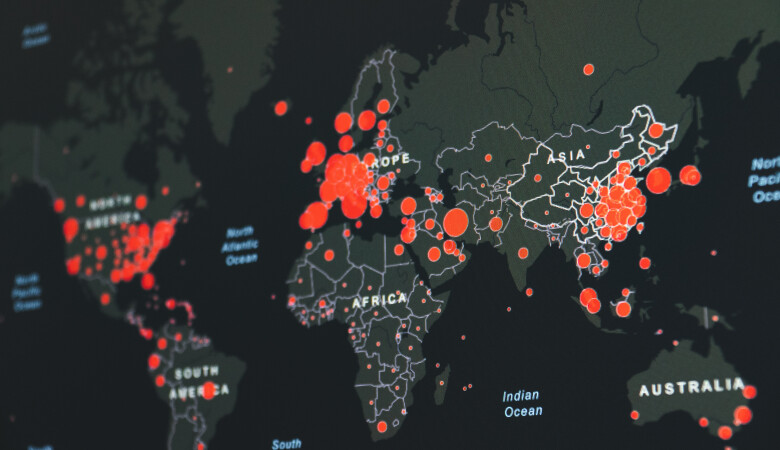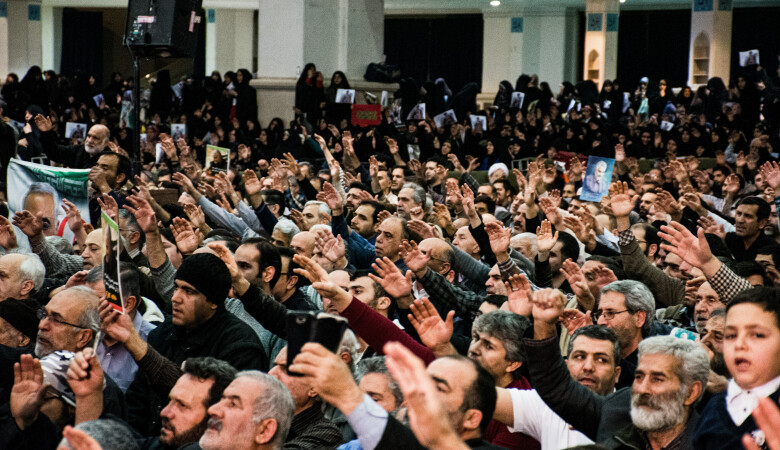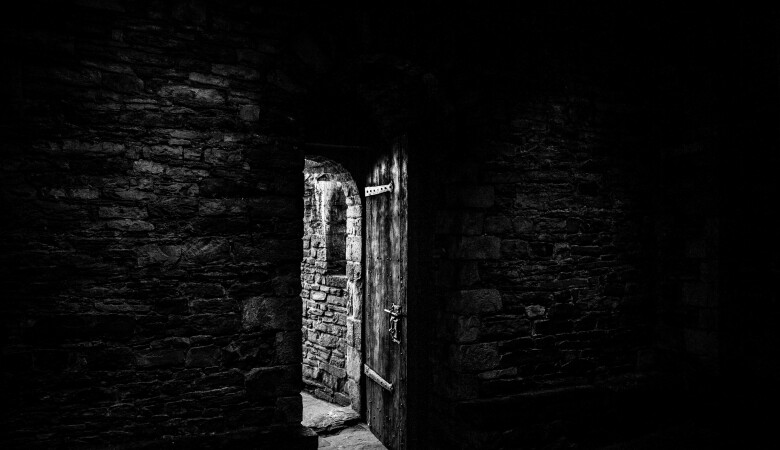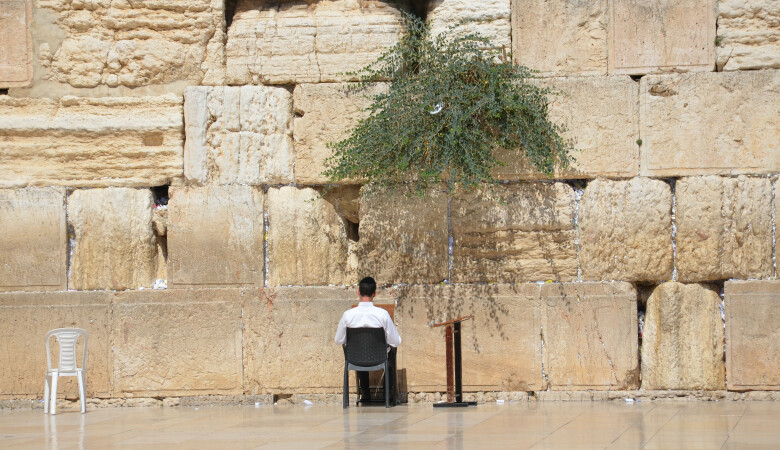Series: Mark
Preparing for the End of the World (Mark Sermon 76)
February 04, 2024 | Andy Davis
Mark 13:32-37
Glory of God, Second Coming of Christ
Jesus urges us to be watchful and prepared for the end of the world when he will return in power and glory. He also tells us to be wise and faithful to what he’s told us to do.
- SERMON TRANSCRIPT -
One of the many ways that we Christians are radically different than non-Christians has to do with the topic of these recent sermons, the second coming of Christ. For us as Christians, we look forward to that day eagerly and energetically yearning for that day. We believe that that day is the remedy to everything that makes this present world so difficult to live in. We believe that someday right in the midst of human history, while people are still marrying and giving in marriage, Christ will return. He will come with the clouds, with the trumpet call of God and the voice of the archangel, and He will break in with great power and the fulfillment of the most common eschatological prayer ever prayed, "May Your kingdom come, may Your will be done on earth as it is in heaven," will come true at last, and we're yearning for that day.
For non-Christians, if they even think about it at all, it's often a thing of mockery. We think about an individual that would walk around like a crazy person with a sign over his neck saying, "The end is near," this thing in New York City or San Francisco, something like that, often a source of mockery and ridicule. That message, the message that the end is near, that the end is coming soon, is met with derision by unbelievers in this world, but that's how it's always been.
Peter writes about this in 2 Peter 3. First of all, you must understand that in the last days, scoffers will come scoffing and following their own evil desires. They will say, "Where is this coming He promised? Ever since our fathers died, everything goes on as it has since the beginning of creation.” Peter goes on and cites a star witness, the experience of Noah in building the ark. The connection that Peter makes there seems to be mockery by people doomed to be swept away. Jesus Himself talked about the heart response of Noah's neighbors during the days when the ark was being built. Matthew 24, "As it was in the days of Noah, so it will be at the coming of the Son of Man for in the days before the flood, people were eating and drinking, marrying and giving in marriage up to the day Noah entered the ark, and they knew nothing about what would happen until the flood came. It took them all away. That is how it'll be at the coming of the Son of Man.” Peter colors in for us the mocking unbelief that Noah had to endure at that time. Peter calls Noah a preacher of righteousness in an era when Genesis tells us that the hearts of people are only evil all the time. When Jesus returns, it's going to be the same way. Wickedness will have greatly increased, people will be murderously hateful toward each other, generally, but especially toward preachers of righteousness who urge people that the end is near and that they should flee the wrath to come.
"When Jesus returns, it's going to be the same way. Wickedness will have greatly increased, people will be murderously hateful toward each other, generally, but especially toward preachers of righteousness who urge people that the end is near and that they should flee the wrath to come."
This morning, we conclude Mark's account of Jesus's words about how we should prepare for the end of the world, how we should be ready for the second coming of Christ when Christ returns in power and glory. We will see that Jesus will urge us to be continually watchful and on guard for that day.
When I was doing Bible study recently in the Gospel of Matthew, we went through Matthew 24 and 25, which has a lot more information than Mark gives us about these themes. In Matthew 24:44, it says, "So you also must be ready," and then it goes on from that in that verse. Then verse 45 in Matthew 24 says, "Who then is the faithful and wise servant?" I circled the words “be ready” and then the word “faithful.” Be ready and be faithful. Then I noticed that the parables in chapter 25 line up perfectly with that. You've got the 10 virgins, five wise and five foolish. If you look at that lesson, it's all about being ready. If you're only partially ready for the second coming of Christ, you'll be eternally excluded from the kingdom of heaven. Then the parable of the talents, the five talents, the two talents, the one talent is all about being faithful with what's entrusted to you. Be faithful. That's the exhortation that I take as I go to Mark 13 as well.
Let's look at the context in Mark and also in Matthew. I have my eye on Matthew as we understand more aspects. The final week of Jesus' life, Jesus, in Matthew 23, has had a climactic prophetic encounter with the Jewish religious leaders of His day. The sevenfold woe to them, "Woe to you, scribes and pharisees, you hypocrites," and they were evil at many, many levels. They were whitewashed tombs, which looked beautiful on the outside but inside full of dead men's bones and everything unclean, but their greatest crime of all was they did not recognize the time of God coming to them in the person of His son. They hated Jesus. They were not sons of Abraham because if they had been sons of Abraham, they would've loved Him, but instead they hated Him and they opposed Him and they would soon condemn Him to death, and so Jesus utters a sevenfold woe on them and culminates in the statement, "Behold, your house is left to you desolate." The emptiness of the house, meaning the nation of Israel generally, but specifically the temple, the emptiness of the temple was underscored when Jesus Himself left, "For you will not see Me again." That is the essence of their desolation, their emptiness as He goes out. At that moment, the disciples come up to Him, calling His attention to its buildings, "Look, Teacher, what magnificent stones, what incredible buildings." Then Jesus drops that bombshell on them, "I tell you the truth. Not one stone here will be left on another. Everyone will be thrown down, blew them away." So they come to Jesus on the Mount of Olives, and they ask for insight. Peter, John, James, and Andrew, the inner circle apostles, wanted to know His explanation for that statement. In Matthew 24:3, threefold question, "Tell us when will these things happen," namely the destruction of the temple, "and what will be the sign of your coming and of the end of the age?" With the more elaborate answer in Matthew 24, the Mount of Olives discourse, and then the more truncated answer, Mark 13, as we harmonize, the interweaving of those themes is complex.
I've received actually numerous emails from people who are very interested in this topic, and I'm going to keep preaching what I'm preaching, but I'm stimulated by your insights on eschatology. I think it's a deep topic, but weaving together the significant event of the destruction of the temple in AD 70 and then the issues of the end of the world and how that's coming. For us, the destruction of the temple is behind us. It's only a matter of historical interest, but also theological interest because of the significance of the Jews, but we're like, "Is there something for us to do here?" and the answer is, "Yes, there is," not just in this one teaching in Mark 13 or even in Matthew 24 and 25. It's pretty clear Jesus is expanding beyond just the destruction of the temple. He's saying we need to be ready for the end of the world, and we need to be faithful between now and then. That's what we're dealing with, the complex interweaving of these themes.
A key interpretive theme for me has been “as it was, so it'll be, as it was in the days of Noah, so it'll be at the coming of the son of man,” we see this recapitulation. Some things happen and then they happen again and again, but also, we see the uniqueness of that final day, celestial portent, things that actual happen so that there will be in fact a new heavens and a new earth, the elements melting in the heat as Peter tells us. So all of these things are huge.
Now, specifically there's a general movement or progress between the first and second coming of Christ. There's going to be difficulty on planet Earth that's not unique to any one generation. There's going to be wars and rumors of wars, famines and earthquakes in various places. There's going to be persecution. You'll be delivered over to councils and you'll be brought before authorities, et cetera, but they are going to be witnesses to Him in every generation and the gospel of the King will be preached to the whole world as a testimony to all nations, and then the end will come.
So whereas those signs of wars, rumors of wars, famines, and earthquakes are no specific indication of anything other than the beginning of birth pains, the progress of the gospel from Jerusalem through Judea Samaria to the ends of the earth is measurable. The spread of the gospel is measurable. It's much further out than it was a week or a month after the day of Pentecost. The spread of the gospel is measurable. and we can see the progress between the first and second coming, but then Jesus zeroes in on specific events tied to a moment in history, namely the abomination of desolation teaching. It's not true of everybody at all time. It's not true of everybody all over the world, but those living in Judea, when they see the abomination that causes desolation spoken of by the prophet Daniel, let the reader understand, then run for your lives.
That teaches an important hermeneutical principle with eschatology. Bible interpretation concerning the end of the world is a right combination of Bible interpretation and current events. That's what you match together. That's the lesson of the fig tree. When you see events happening that line up with things you see in the Bible, then you'll know, then you'll know. So we move ahead.
Now, the events surrounding the destruction of Jerusalem required specific actions by Jesus' disciples. Get out of the city of Jerusalem, counterintuitive; don’t go into the walled citadel. Get away from it. Run away from it to the mountains and hills. So also the events surrounding, I believe, the final version of the abomination of desolation spoken of by Daniel. Also very important to me is 2 Thessalonians 2 in which Paul wrote to the Thessalonian Christians saying, "The day the Lord cannot come until you see effectively the man of sin and the abomination of desolation fulfilled," almost a direct quotation of Daniel 11.
Still yet to come, still yet to come. There's going to be all of this persecution, a time of tribulation unlike any of the world had ever seen from the beginning of the world until that point and never seen again. I believe then in His kindness, the Lord has given through the Holy Spirit more signs than just in Matthew 24 and also in Mark 13 and in Daniel, but the whole book of Revelation is given to tell His servants what must soon take place. We're told in Revelation, "Blessed are those who read and take to heart the things that are written there." So for me as a preacher of the whole Bible, I want to harmonize that but then plug it into what we're saying when you see these signs. In Revelation 8, we have ecological disasters that have never happen before ever. A third of the ocean turning the blood, a third of the drinking water fouled, that's never happened. Burning up of trees and grass, that's never happened, not to that degree. Ecological destruction, which makes sense theologically, the linking between Adam's sin and the earth producing thorns and thistles, that whole link between human sin and ecological ravaging is fulfilled in the book of Revelation. When you see all of that, plus the man of sin, the antichrist, the beast from the sea, the one world government that openly described in Revelation 13, then you'll know. All of those marks that leads to the second coming described in Mark 13:24-27, "In those days following that distress, the sun will be darkened, the moon will not give its light. The stars will fall from the sky and the heavenly bodies will be shaken. At that time, men will see the Son of Man coming in the clouds with great power and glory and He'll send his angels and gather His elect from the four winds from the ends of the earth to the ends of the heavens."
That's second coming described in language from Isaiah 13, which if you read Isaiah 13, we are not sure if it’s talking about the fall of Babylon there or, frankly, the end of the world. Isaiah's vision was immediate and then out to the end, very complex, but we know from the book of 2 Peter, and we also know from Jesus' statement, heaven and earth are going to pass away, so that includes the sun, the moon, and the stars. I can well imagine that that would happen at the time of the second coming and the angels being sent out to gather the Elect. We're going to be caught up in the clouds to meet the Lord in the air when He comes with His armies in heaven, the second coming.
Then we're told from last week the lessons of the fig tree. Look at that. When you see these things, you'll know. In the meantime between now and then, suppose you say, "Well, pastor, I don't see those things. I don't see a one world government," don't tell me about some leader whose name all have six letters, the first, middle, and last name. Don't do that. I've heard that before. Ronald Wilson Reagan, he was the antichrist. he’s dead. He's clearly not the antichrist. People do that, and I understand that. They want to calculate the number of the beasts and they want to figure all that and that shrewdness and discern. It's like, "Look, you're not going to miss it. We're talking about globe-shattering events described in the Book of Revelation. That's what we're talking about. You're not going to wonder."
I. No One Knows That Day or Hour
So between now and then, what? In the language of Matthew, it's be ready, be faithful. A different way that Mark says in Jesus' words in Mark is “be watchful.” I think that's similar to being ready. It begins with Jesus' statement here, "No one knows about that day or hour." Look at verse 32, "No one knows about that day or hour, not even the angels in heaven, nor the Son, but only the Father." Vigilance is needed because we don't know the day or hour. That's the logic in Jesus' mind, "Because you don't know you need to be ready and watchful." Verse 35, "Therefore keep watch because you don't know when the owner of the house will come back." That's His logic.
God's will in this matter is to conceal this information, He’s hiding it. Being in the dark is not an accident here. It's not like God couldn't have told us. If it would've been better for us to know, He would've told us. He could easily. He's told us many detailed overwhelming things about the future in the book of Revelation and other places, a lot of things we know. He could have given us a specific date and time and other milestones if He wanted to leading up to the exact time of the second coming of Christ, but God felt it best to keep His people in the dark.
He wanted us to be ready and to be faithful in every generation. The parable of the five wise and five foolish virgins implies a long intervening period where everyone falls asleep. The sleep of the virgins isn't necessarily sinful, it just implies a long time, perhaps even death at that point depending on how you read the parable. Fundamentally, He doesn't want His servants being selfish and lustful like in Matthew 24, "Suppose that servant is wicked and says to himself, 'My master's staying away a long time,' and then he begins to beat his fellow servants and to eat and drink with drunkards." So to not be like that, he's keeping us in the dark. We don't know, so we need to be ready, every generation. Concerning the exact day or hour, a humble servant would say what we learned to say in Deuteronomy 29:29, which is, "The secret things belong to the Lord, but the things revealed belong to the children forever." So we need to let God keep secret what He wants to keep secret and then understand what He has revealed.
Secondly, Jesus says, "The angels don't know either. No one knows about that hour, not even the angels in heaven." Angels are created beings or creatures, they're servants of God. The angels in heaven are pure beings, perfect with perfect minds, but they are creatures limited in their knowledge. Angels can learn things, there are things angels don't know. This text openly says that the angels don't know this. Peter tells us in 1 Peter 1:12, "Even angels long to look into these things," these things having to do with redemptive history, having to do with the unfolding plan of God. Even angels long to look into these things. One of the best examples of angelic inquiry into these things, specifically the timing of the second coming is in Daniel 12:6. One of them, definitely an angelic being, one of them said to the man clothed in linen who was above the waters of the river, another angelic being, "How long will it be before these astonishing things are fulfilled?" That's where we get in that chapter a countdown of days, which I'll cover later in the sermon, but all I'm saying is at that moment in Daniel 12:6, one angel's asking another angel, "How long will it be?" They don't know and they're inquiring. The angels are tracking the progress of the spread of the gospel. Jesus said in Luke 15 about the parable of the lost sheep, the lost coin, and the lost son, the prodigal son. In all three cases, there's a search for what's lost, a finding of what's lost, and then a big celebration. Jesus said in Luke 15:10, "There is rejoicing in the presence of the angels of God over one sinner who repents." That means that God is rejoicing in the presence of His angels and they most certainly must be rejoicing with Him over the progress of the gospel every single day of redemptive history. Think about that. Just one party after another up in heaven as people are saved by the gospel, how exciting is that? They're just celebrating, but they're tracking.
Also in the book of Revelation, don't you see the angels are tracking the unfolding judgments on the earth? They're reacting to what's happening and they're rejoicing in what's happening, and they're vindicating God in what's happening. They're tracking, they're involved. "They don't know the exact day or hour," Jesus said. Most amazingly of all in this statement is Jesus' statement that He didn't know as the Son. Now, that's mind blowing, but it's okay. We should understand the doctrine of the incarnation is infinite in its depth and majesty and magnitude. We'll spend eternity trying to understand the incarnation, trying to understand the complexity of Jesus fully God and fully man and the willing limitations He took on Himself to become a human. For example, though God is omnipresent, Jesus in His body wasn't. He was only one place at one time, and so He willingly limited Himself there. So also, though God is omniscient, it is very important we understand that Jesus limited His knowledge and therefore didn't know some things, like here, and could learn things. God has never learned anything and ever will. Now, that's mind blowing it, isn't it?
Has it ever occurred to you that nothing has ever occurred to God? God never has had a new thought ever. God's never had an aha moment, never. God already knew it, but Jesus grew in wisdom and in stature and in favor of God of Man. When He was a young boy in His parents' home, He learned, He grew. Then there's moments where the best interpretation, I think, of the woman with the bleeding problem touching Him and Jesus stops and says, "Who touched me?" "What do you mean who touched you?" everybody said. "No, no, no, someone touched me because power has gone through me." The best explanation of that is that He didn't know who touched Him. Here at least we don't have to wonder. He says He didn't know, He openly says there's a limitation of that. When we get to Gethsemane in a couple of weeks, I think that's also what's going on there too. We'll get to that. I don't want to steal thunder from that, but I believe there is a revelation of what it'll be like to drink the cup of God's wrath that knocked Jesus to the ground. So there is that ability that Jesus has in His incarnation to learn things and to not know things.
Jesus had supernatural knowledge. He was reading people's minds. He knew things distant and remote like the Syrophoenician woman's demon possessed daughter. The demon has gone. How do you know that he's gone? Supernatural knowledge but still limitations. We believe also that when He ascended, He rose from the dead and ascended to heaven, when He got all of His glory back with the Father, that includes omniscience. He says in John 17:5, "And now, Father, glorify Me with the glory I had with You before the creation of the world." So we believe that Jesus knows right now everything there is to know. In Christ are hidden all the treasures, wisdom, and knowledge. He knows everything. That therefore is an important interpretive key on asking the next question. Did Jesus say here about that day or hour no one knows or ever will know? He doesn't say that. We know already He's exempt from the second half. No one knows, present tense, or ever will know. We know that's not true of Him. Most scholars believe that this statement means no one on earth can ever know the exact day of Jesus' return. That's not what the verse says. It is possible that that is true, but it's not what that verse says. We know already Jesus is exempt from it.
By the way, such expressions do exist in the Bible. For example, 1 Timothy 6:16, it says, "God alone is immortal, dwells in unapproachable light," listen, "whom no one has seen or can see." So there's an absolute statement of limitation. So we could imagine, no one can know, no one does know, and no one can ever know the exact day or hour. Therefore, when I go back to Daniel 12 and the angel answering the other angel's question, "When will all this happen?" and he gives an answer in a countdown of days, I find that interesting. "From the time," this is Daniel 12:11-12, "From the time that the daily sacrifice is abolished and the abomination that causes desolation is set up, there'll be 1,290 days. Blessed and holy or blessed is the one who waits for and reaches the end of the 1,335 days." I've said this to you many times before. What is that? What is Daniel 12:11-12? Could it be that knowing the exact day of the Lord's return is on a need to know basis? If you need to know, you'll know. If you see the abomination of desolation, the final version set up and you're running for your life and you're hiding in a cave somewhere and you're counting down the days of which Jesus said, if those days had not been cut short, no one would survive. He may want you to know how many more days of this we're going to have to go through. Maybe, maybe not, but either way, it's at least possible. So I can tell you this, it's on a need to know basis and, apparently, you don't need to know, so you don't know and neither do I.
II. Be On Guard! Be Alert!
What does He exhort us to do? Then “be on guard and be alert” or in the language of Matthew, “be ready.” Be ready. Verse 33, "Be on guard. Be alert. You do not know when that time will come." Verse 35, "Therefore keep watch because you do not know." Verse 37, "What I say to you, I say to everyone. Watch." So be watchful for the Lord's coming. This watchfulness is essentially positive. We want this to happen. In the common language, we're looking forward to this. Like a little kid looking forward to his or her birthday, we're looking forward to this. We want it to happen. We're expectant for this. Revelation 22:20, "He who testifies to these things that Jesus says, 'Yes, I am coming soon,'" and then John answers from his heart, "Amen. Come, Lord Jesus." Come, Lord Jesus, we want that to happen. We're taught to long for that moment. 2 Timothy 4:7-8, 4:7,-8, “'I've fought the good fight,’" Paul says, “'I've finished the race. I've kept the faith. Now there is in store for me a crown of righteousness, which the Lord, the righteous judge, will award to me on that day and not only to me, but to all who have longed for His appearing.'"
Isn't that a biblical urging for us to long for the appearing of Christ, longing for it? Earlier in that same chapter, Paul taught Timothy to do all of his ministry in light of the second coming. 2 Timothy 4:1-2, "In the presence of God and of Christ Jesus who will judge the living and the dead and in view of His appearing and His kingdom," appearing as Parousia, "He's appearing in his kingdom, I give you this charge. Preach the word, be prepared in season and out of season, correct, rebuke, and encourage with great patience and careful instruction." So for me as a pastor, it's like I should be doing my ministry constantly in light of the second coming of Christ, aware of it. Four times in Mark, Jesus tells us to watch, be on guard for the coming of the Lord.
Now, this expectancy shapes the way we live our entire lives. It shapes us negatively to be on guard for the dangers to our faith. We're supposed to be on guard and be defensive, in a defensive mode about the onslaught. The enemy's coming. We are in danger of our sin. The idea is we want to be healthy in our faith when Jesus comes, so we won't be ashamed as John tells us, to be holy and healthy in our faith so we will not be ashamed when He comes. Jonathan Edwards, one of his resolutions when he was 19 years old, he said, "Resolved to never be doing anything that I would be ashamed to be found doing when the Lord came in the final hour." Wow. You don't know, so don't be doing something you don't want to be ashamed doing when He returns or as Jesus says in Luke 21:34-36, "Be careful or your hearts will be weighed down with dissipation, drunkenness in the anxieties of life, and that day will close upon you unexpectedly like a trap." You didn't see it coming. You forgot about the second coming and you went off into sin, you went off into worldliness, you went off into lust, and suddenly the day came and you didn't see it coming.
Four, it will come upon all those who live on the face of the whole earth. That's not just the fall of Jerusalem, dear friends, that’s the whole world. We need to be ready for an event that's coming on the entire face of the earth. Be always on the watch and pray that you may be able to escape all that is about to happen and that you may be able to stand before the Son of Man, that you'll have to stand before Him unashamed of how you were living when He came. The lazy and lustful servant in Matthew 24 is shocked when his master comes unexpectedly. Matthew 24:48-51, "Suppose that servant is wicked and says to himself, 'My master's staying away a long time,' and then he begins to beat his fellow servants into eat and drink with drunkards. The master of that servant will come on a day when he does not expect him and an hour he's not aware of. He'll cut him to pieces and assign him a place with the hypocrites where there will be weeping and gnashing of teeth."
We have to watch over our own souls, our doctrine, very carefully to be ready for the second coming of Christ. That trial will come at the end of the world and it'll be the greatest hour of testing that believers have ever had to go through in all of redemptive history. It's going to be very hard those last days, so be ready, be watchful.
III. Be Faithful While You Watch
Then he says also, "Be faithful." Look at verses 34 through 37. It's like a man going away. "He leaves his house and puts his servants in charge, each with his assigned task and tells the one at the door to keep watch. Therefore, keep watch because you do not know when the owner of the house will come back, whether in the evening or at midnight or when the rooster crows at dawn. If he comes suddenly, do not let him find you sleeping. What I say to you, I say to everyone. Watch."
The idea of this paragraph is we are given jobs to do in the intervening time. We're given tasks to perform. These are entrusted to us and we need to be faithful doing them. We need to be faithful. Again, as with many parables, there's the concept of the absentee authority figure, the absentee Lord, the absentee owner, the absentee king, the absentee master who entrusts the vineyard or the talents or the household to some servants and goes away. He's not there. You’ve got to be faithful and be aware. Someday the owner of the king is going to come back and settle accounts here and we got to be ready for that. Got to be ready for that. There's a lot of those kinds of parables.
Note the phrase, each with his assigned task. So you have to ask yourself, "What is my assigned task? Do I have one?" You do. What has the Lord assigned you to do? If you don't know, you better find out. What has He left you here to do? What is your work here on earth? You're not here for no purpose, so each person has specific work assigned to him. I think a key way that the New Testament teaches is the doctrine of spiritual gifts, the doctrine of spiritual gifts taught in Romans 12, 1 Corinthians 12, and other places. Romans 12 says, "Each of us has one body just as each of us has one body with many members, and these members do not all have the same function. So in Christ, we who are many form one body and each member belongs to all the others." We have different gifts according to the grace given us. So the giving of the spiritual gift comes with a string attached, and the string is accountability to the Lord. You have to find out what your spiritual gift package is and what ministry is tied to it and be faithful doing it.
"We have different gifts according to the grace given us. So the giving of the spiritual gift comes with a string attached, and the string is accountability to the Lord. You have to find out what your spiritual gift package is and what ministry is tied to it and be faithful doing it."
Paul goes on and says, "If a man's gift is prophesying, let him use it in proportion to his faith. If it is serving, let him serve. If it is teaching, let him teach. If it is encouraging, let them encourage. If it is contributing to the needs of others, let him give generously. If it is leadership, let him govern diligently. If it is caring for others, let him do it cheerfully." So whatever your role is, do it. That's what Paul's saying, do it. Do your task. He expects us to be faithful.
That, by the way, again, is the parable of the five talents, the two talents, and the one talent. He entrusts property and He expects you to go out and trade with it and make something of it. He expects you to not be wicked and lazy.
As Jesus makes plain concerning faithfulness, who then is the faithful and wise servant whom the master put in charge of the servants in his household to give them their food at the proper time? It will be good for that servant whose master finds him doing so when he returns. Faithful means you did the work the Lord entrusted to you. You stuck with it. You worked at it with all your heart. Wise means you understood the Lord's will and you sought to please Him with your efforts, to do anything else would be foolish. Don't be foolish like the foolish virgins who weren't ready. It's wise or foolish. Who is the faithful and wise servant? That's what he's talking about here.
The great danger Jesus list here in Mark is sleep. Mark 13:36, "If he comes suddenly, do not let him find you sleeping." This is warning specifically about sleep in light of the second coming. This is clearly a sinful sleep. This is not the sleep that the Lord gives graciously to His faithful servants after a hard day's work. Ecclesiastes 5:12 says, "The sleep of a laborer is sweet," or it says in Psalm 4:8, "I will lie down and sleep in peace for you alone, O Lord, make me dwell in safety," or again, the 23rd Psalm, "He makes me lie down in green pastures. He restores my soul." We need that. That's not what it's talking about. This is a sinful sleep. This is, I believe, the sleep of a spiritual sluggard. You know the sluggard in Proverbs 6:10-11? "A little sleep, a little slumber, a little folding in the hands to rest and poverty will come upon you like a bandit and scarcity like an armed man." Basically, the sleepiness here is laziness in the spiritual ministries the Lord's given us to do within the church through spiritual gifts and outside of the church through evangelism and missions. That's the work we are called to do. The question is, are we doing it?
Again, he says, "Watch because you don't know when the Lord is coming," and then he divide the night into four sections, 6:00 PM to 6:00 AM. So you go from 6:00 PM, that's night for them, 12-hour segment. So evening ends at 9:00 PM, midnight at 12:00 AM. With the rooster crowing, that's at 3:00 AM and then dawn at 6:00 AM. There's segments of the night. The sense is you get a progression of time and you don't know at any point he could come. You just don't know when he's going to come, and so we need to be alert.
The dangers here are our own sinfulness and our own wickedness, and also in terms of holiness and then laziness in the harvest, laziness in evangelism and mission. In terms of personal sin, Paul nails it here in Romans 13:11-14. He says, "And do this understanding the present time. The hour has come for you to wake up from your slumber because our salvation is nearer now than when we first believed. The night is nearly over. The day is almost here. So let us put aside the deeds of darkness and put on the armor of light. Let us behave decently as in the daytime, not in orgies and drunkenness, not in sexual immorality and debauchery, not in dissension and jealousy. Rather clothe yourselves with the Lord Jesus Christ and do not think about how to gratify the desires of the flesh."
That's what he means by don't be sleepy. It's don't be immoral, don't be wicked, don't be corrupt. Put aside the deeds of darkness and put on the armor of light. That's Romans 13, but also , it's a matter of laziness in the harvest. Right before Jesus descended to heaven, He went out with his disciples on the Mount of Olives. After His resurrection, after His 40 days of instruction, after all of that, they asked Him, "Lord, are You at this time going to restore the kingdom of Israel? He said, “'It's not for you to know the times or dates the Father has set by His own authority, but you'll receive power when the Holy Spirit comes on you and you'll be My witnesses in Jerusalem and in all Judea and Samaria and to the ends of the earth.’ After He said this, He was taken up before their very eyes and a cloud hid Him from their sight. They were standing looking up into the sky as He was going when two men dressed in white came and stood beside them and said, ‘Men of Galilee, why do you stand here looking up in the sky? This same Jesus who has been taken from you into heaven will come back in the same way you've seen Him go into heaven.’" Jesus had already told them what to do, "Wait in the city until you've been clothed with power from on high. The holy spirit's coming."
Putting all together, those were Jesus' final words to the church. We will be His witnesses to a lost and dying world. That's our work to do. So the question is, are we being faithful or are we being sleepy? It says in Proverbs 10:5, "He who gathers crops in summer is a wise son, but he who sleeps during harvest is a disgraceful son." There's a harvest going on now. We're told to lift up our eyes and look at the fields that they're white for harvest. We're told the harvest is plentiful, but the workers are few. There's a harvest going on. The question is, are we gathering crops during harvest time or are we sleeping during the harvest and that's a disgraceful son? The question we have to ask is, "Am I exerting myself to be a witness to lost people?" This is what we're called to do.
One last thing, the doorkeeper and the steward. This specifically relates to me as a pastor, in Mark 13:34, Jesus speaks of a servant being put at the door like as a doorkeeper who gives alerts to the rest of the house. Look at verse 34, "He leaves his house and puts his servants in charge, each with his assigned task, and tells the one at the door to keep watch." So that's like me. My job is to keep watch and to shout into the household saying, "The master's coming. The master's coming. He's coming soon. He's coming soon." That's my job. So that's what I'm doing in this sermon, and I've done the last few weeks. My job is to call out to you and tell you these things and keep you ready.
Also, there's a feeding ministry at the end of Matthew 24, "Who then is the faithful and wise servant whom the master is put in charge of the servants in his household to give them their food at the proper time.” Again, that's a pastor's call, "Feed my sheep." So I get to do two things. I get to warn you and I get to feed you, and that's what I'm trying to do in these eschatology sermons.
IV. Applications
How do we prepare for the end of the world? If I could just boil it down to two things, I think I would just say be ready and be faithful. If you didn't get anything else, that's it. How can you be ready? First, make certain that you're in Christ, that you're one of His and not an enemy of His, that you belong to Jesus through repentance of your sins and faith in Jesus Christ crucified and resurrected for the forgiveness of your sins. Listen to this. This is 2 Thessalonians 1:7-10. It speaks of when the Lord Jesus is revealed from heaven in blazing fire with powerful angels. "He will punish those who do not know God and do not obey the gospel of our Lord Jesus." That's devastating. “He will punish those who do not know God through the gospel of Christ. They will be punished with everlasting destruction and shut out from the presence of the Lord and from the majesty of His power on the day He comes to be glorified in His holy people and to be marveled at among those who have believed. This includes you because you believed our testimony to you.”
That all comes down to this. Believe the testimony about Jesus and you'll be ready, ultimately ready for the second coming, but beyond that, be ready and be faithful as Christians. Watch over your life in terms of sin. Read Romans 13:11-14 and wake up concerning sinfulness. I think sometimes there's a sleepiness that comes over us and a complacency similar to one of those Tolkien books where a massive spider stings us and wraps us up with sticky web to eat us later. That's like Satan, isn't it? It's a picture of Satan. We get stung and paralyzed and weak and flabby and we're going to get eaten later. So Romans 13:11-14 says, "Cut through all that, break free, and live in the light, not in the darkness. Give up sexual immorality, give up covetousness and greed and idolatry. Give up those things and live a holy life.” Peter tells us to live a holy life, be ready, and then watch for the second coming constantly. One of the things we do here in this church is we should help each other for that day. We should help each other.
It says in Hebrews 10:23-25, "Let us consider how we may spur one another on toward loving good deeds. Not neglecting meeting together is somewhere in the habit of doing, but encouraging one another and all the more as you see the day approaching." That is second coming language, isn't it? As we see the day approaching, we should encourage each other to do good works. A healthy church will do that. Be part of a healthy church, which exhorts and encourages one another toward love and good deeds.
Finally, be active in the harvest. We're surrounded by lostness. Statistics estimate show that Durham is going to double in population the next 25 years, up to estimates of 450,000 people. That's an additional 200,000 to 225,000 people living right within this vicinity. I would say the overwhelming, if it's our entire nation, the overwhelming majority of those people flooding into this area will be unchurched. They'll be lost. They'll be without hope and without God in the world. Our responsibility is to strategize how we can meet them and share the gospel with them, get to know them, and draw them in. Let's be faithful in that harvest.
Close with me in prayer.
Father, we thank You for the clarity of Your word. We thank You for how You tell us enough to know, enough to go on, Lord, how we should be living our lives. We don't know the day or the hour, but we do know that You are coming, You will return and that we should be ready and be faithful. So I pray that You would enable us to do that. Help us to be faithful in the tasks You've given us to do. Help us to think continually about the second coming and exhort one another and provoke one another to loving good deeds. Help us to be bold in evangelism and creative. Help us to get outside of our bubble of safety and take risks and be willing to meet people and have conversations and share the gospel. We pray this in Jesus' name. Amen.































